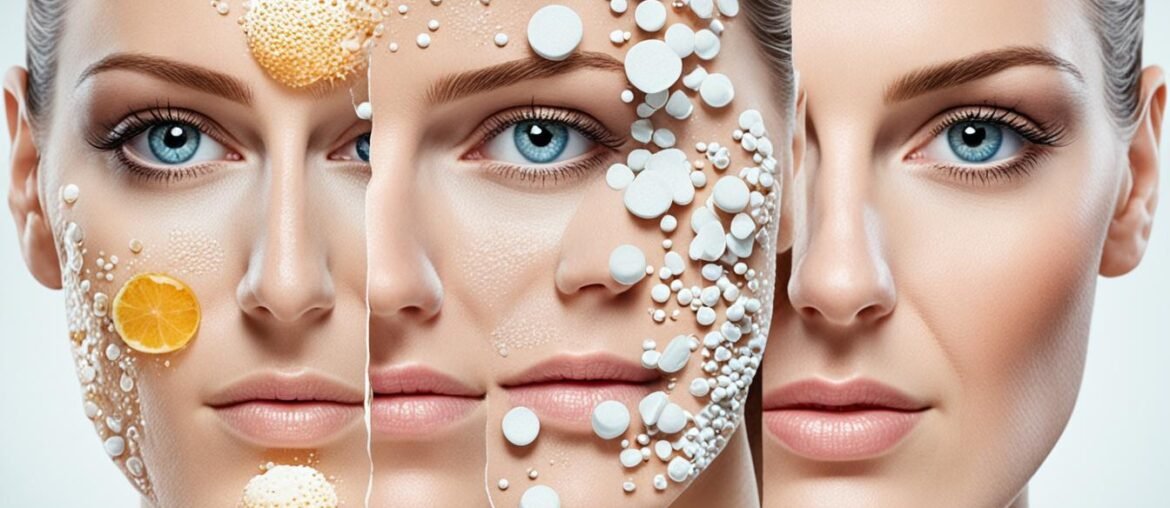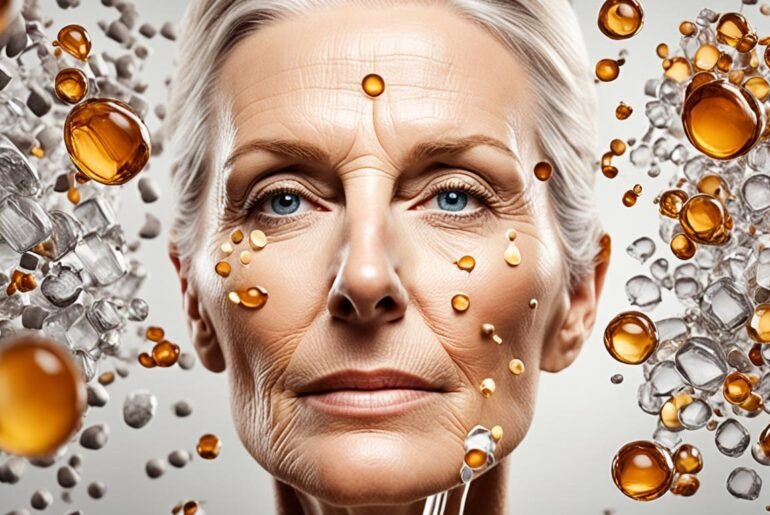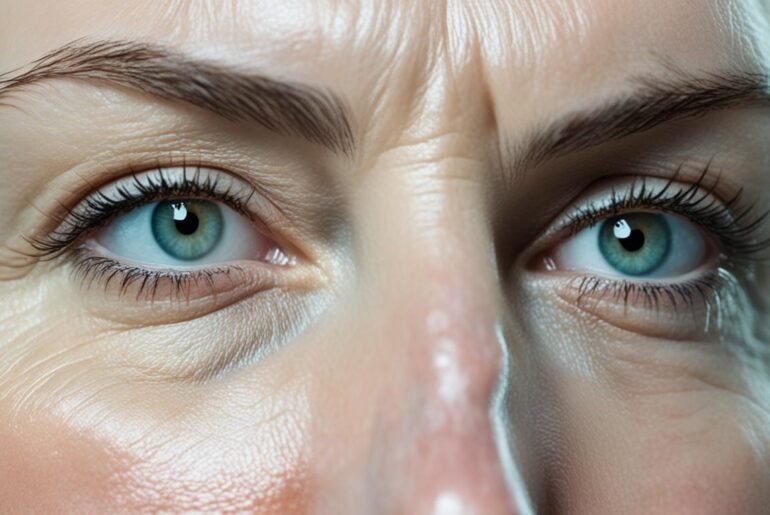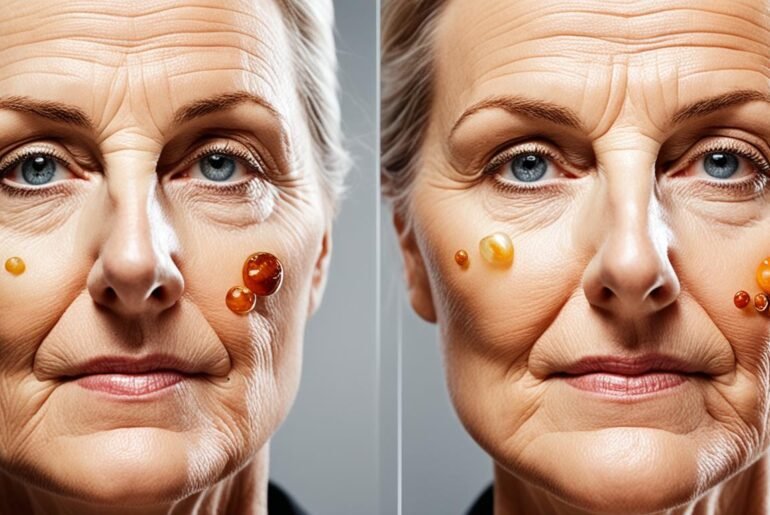Did you know that excessive alcohol consumption can hinder your skin’s ability to absorb essential vitamins? It’s true. Many people take vitamin supplements to improve their overall health and support specific organ or system functions. However, alcohol can interfere with the absorption process, leading to deficiencies in crucial vitamins like B12, thiamine, folate, vitamin C, and more. The effects of alcohol on skin vitamin absorption are not to be underestimated, as they can have a significant impact on your skin health.
When it comes to alcohol’s influence on skin vitamin absorption, it’s important to understand how it affects your body. Excessive alcohol consumption can damage the cells lining your small intestine and stomach, reducing their efficiency in absorbing nutrients. It can also decrease the production of digestive enzymes in the pancreas, hindering the breakdown and absorption of vitamins. Furthermore, alcohol can disrupt the body’s microbiome, increase the transport of toxins across intestinal walls, and affect the storage and excretion of nutrients.
All of these factors combined can lead to deficiencies in essential vitamins that are crucial for maintaining healthy skin. Vitamin deficiencies can manifest in various ways, including dryness, dullness, uneven skin tone, and even more severe skin conditions.
Key Takeaways:
- Excessive alcohol consumption can hinder the absorption of essential vitamins through the skin.
- Alcohol’s damaging effects on the cells lining the small intestine and stomach can decrease nutrient absorption.
- It can disrupt the body’s microbiome and affect the storage and excretion of nutrients.
- Vitamin deficiencies caused by alcohol consumption can manifest in various skin issues.
- Understanding alcohol’s impact on skin vitamin absorption is crucial for maintaining optimal skin health.
The Effects of Alcohol on the Skin
Alcohol consumption can have various effects on the skin. It can cause flushing, reduced elasticity, dryness, and worsen underlying skin conditions such as rosacea, psoriasis, seborrheic dermatitis, porphyria cutanea tarda, and discoid eczema. Alcohol can also increase the risk of skin infections and skin cancer, weaken the immune system, and cause changes in the skin due to alcoholic liver disease. Additionally, alcohol can contribute to dehydration, which can further affect the skin’s health and appearance.
| Effects of Alcohol on the Skin | Alcohol and Skin Health | Alcohol’s Impact on the Skin | Alcohol’s Effect on the Skin | Skin Conditions and Alcohol Consumption |
|---|---|---|---|---|
| Flushing | Reduced Elasticity | Dryness | Increased Risk of Skin Infections | Worsening of Underlying Skin Conditions |
| Skin Cancer | Weakens the Immune System | Changes in the Skin due to Alcoholic Liver Disease | Dehydration |
Dehydration and Alcohol
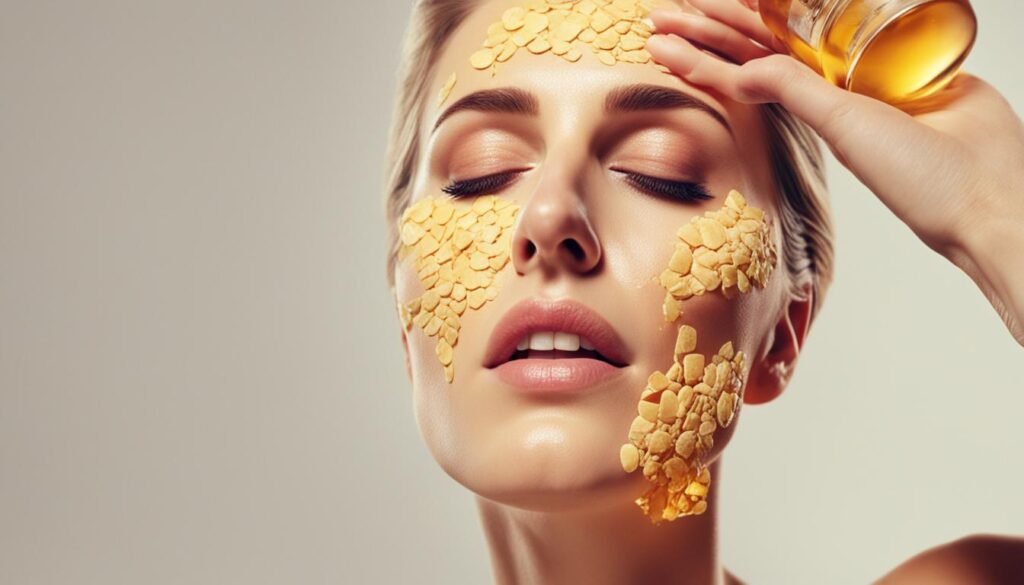
Alcohol consumption can have a significant impact on hydration levels in the body. As a diuretic, alcohol increases urine production and can lead to dehydration. This can have negative effects on the skin, compromising its health and appearance.
Dehydration caused by alcohol can result in dryness, sunken eyes, decreased skin elasticity, and dry lips. These visible signs of dehydration can contribute to a dull complexion and premature aging of the skin.
Fortunately, there are steps you can take to mitigate the dehydrating effects of alcohol and minimize its impact on your skin. Drinking water in between alcoholic beverages can help replenish lost fluids and maintain hydration levels. Staying hydrated is crucial for supporting skin health and preventing the damaging effects of dehydration.
Remember to drink responsibly and be mindful of your alcohol intake to protect your skin from dehydration. Prioritizing hydration can go a long way in maintaining healthy, hydrated skin.
The Importance of Hydration for Skin Health
Proper hydration is vital for maintaining optimal skin health. When the body is hydrated, the skin appears plump, smooth, and radiant. Adequate hydration helps to nourish the skin cells, flush out toxins, and maintain its natural moisture barrier.
In contrast, dehydration can leave the skin dry, flaky, and dull. It can exacerbate existing skin conditions and contribute to the development of new issues, such as acne or inflammation.
By staying hydrated and minimizing alcohol consumption, you can support your skin’s overall health and ensure it maintains its natural glow and vitality.
Flushing and Alcohol
Alcohol consumption can have a significant impact on the appearance of the skin, particularly in relation to flushing. When alcohol is consumed, it stimulates the release of histamines in the body. Histamines are chemicals that cause the blood vessels under the skin to dilate, resulting in flushing or inflammation of the complexion.
This flushing effect can be more pronounced in individuals of East Asian descent due to a deficiency in the enzyme responsible for processing alcohol, known as alcohol dehydrogenase. As a result, the blood vessels in their skin may dilate more easily and persist for longer periods, leading to a flushed appearance.
It is important to note that facial flushing caused by alcohol consumption is temporary and typically subsides once the body metabolizes the alcohol. However, frequent or excessive alcohol consumption can exacerbate flushing, leading to more persistent redness and even the development of rosacea, a chronic skin condition characterized by facial redness, visible blood vessels, and in some cases, small bumps or pimples.
To manage the effects of alcohol-related flushing, individuals can consider reducing their alcohol intake or opting for non-alcoholic alternatives when socializing or celebrating. Additionally, maintaining a skincare routine that includes gentle cleansers, soothing moisturizers, and products formulated to calm and strengthen the skin’s barrier can help minimize the appearance of flushing and support overall skin health.
Sleep Disruption and Alcohol’s Effect on the Skin
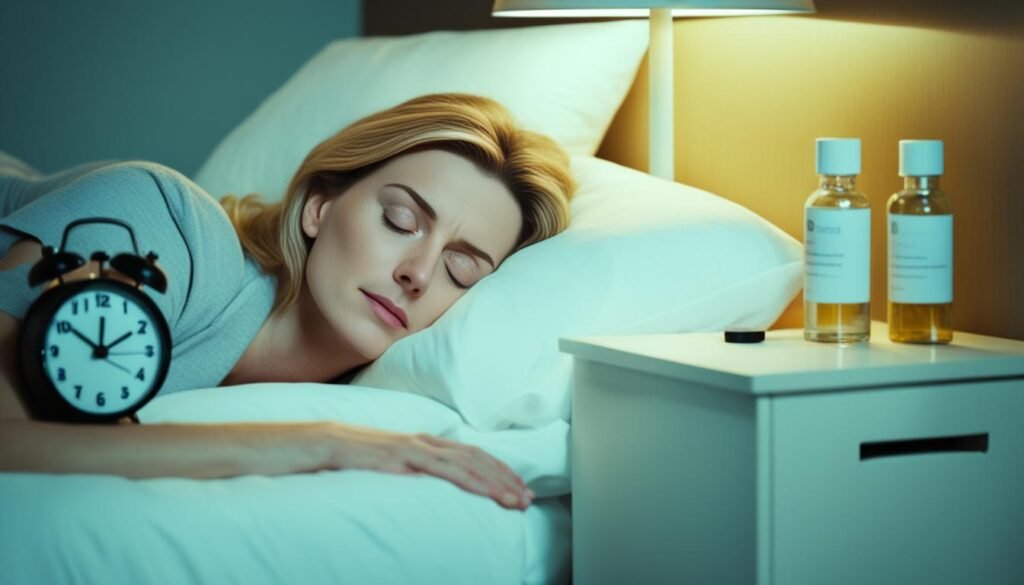
While alcohol can initially help with falling asleep faster, it can disrupt sleep patterns and lead to frequent awakenings during the night. This can have a significant impact on the health and appearance of the skin.
One of the visible effects of sleep disruption caused by alcohol is the appearance of darker circles under the eyes. Lack of quality sleep can result in poor circulation, causing blood vessels under the eyes to dilate and become more noticeable. Additionally, sleep deprivation can lead to paler skin due to reduced blood flow, resulting in a dull complexion.
Another consequence of disrupted sleep is the increased likelihood of developing wrinkles and fine lines. During deep sleep, the body repairs itself, including the skin’s regenerative processes. When sleep is compromised, the skin may not have enough time to undergo proper repair, leading to the formation of wrinkles and fine lines.
Chronic alcohol consumption can exacerbate these effects on the skin. Regularly consuming alcohol disrupts the natural sleep-wake cycle, leading to long-term sleep deprivation. Over time, this can further contribute to the deterioration of the skin’s health and appearance.
“Alcohol-induced sleep disruption can have a detrimental effect on the skin, resulting in dark circles, a dull complexion, and increased wrinkles.”
To maintain healthy skin, it is important to prioritize good sleep hygiene and minimize alcohol consumption. Establishing a consistent sleep schedule, creating a relaxing bedtime routine, and avoiding alcohol before bed can all help improve sleep quality and preserve the skin’s health and appearance.
Alcohol’s Role as a Skin Penetration Enhancer
When it comes to skincare, there’s a lesser-known aspect of alcohol that goes beyond its consumption. Topically applied alcohol can actually act as a penetration enhancer, affecting the transdermal absorption of various substances. This includes xenobiotics, which are external substances that can enter the body through the skin.
Alcohol as a penetration enhancer works by temporarily disrupting the skin’s barrier function, allowing other substances to pass through more easily. This can have implications for the skin’s health and potential exposure to harmful substances, such as carcinogenic contaminants found in cosmetic formulations.
A study published in the journal Skin Pharmacology and Physiology demonstrated that alcohol significantly increased the skin permeability to xenobiotics, suggesting that it can play a role in the absorption of potentially hazardous ingredients in skincare products.
| Effects of Alcohol as a Penetration Enhancer | Potential Consequences |
|---|---|
| Increased absorption of contaminants | Potential skin irritation or adverse reactions |
| Enhanced penetration of toxic substances | Potential long-term skin damage |
| Facilitated absorption of irritating agents | Inflammation or allergic reactions |
This information highlights the importance of being mindful of the ingredients in skincare products that contain alcohol, especially for individuals with sensitive skin or pre-existing skin conditions. Reading labels and opting for products without alcohol or with lower concentrations may help minimize potential risks.
“The use of alcohol as a skin penetration enhancer can have unintended consequences, as it may facilitate the absorption of harmful substances into the body. It’s crucial to make informed choices when it comes to skincare products and prioritize the health and well-being of our skin.”
Summary: Alcohol’s role as a skin penetration enhancer can impact the absorption of substances through the skin, including potentially harmful ingredients in skincare products. This highlights the need for caution when selecting and using alcohol-containing skincare formulations, especially for individuals with sensitive skin or existing skin conditions.
Specific Products and Alcohol’s Impact on Skin Health
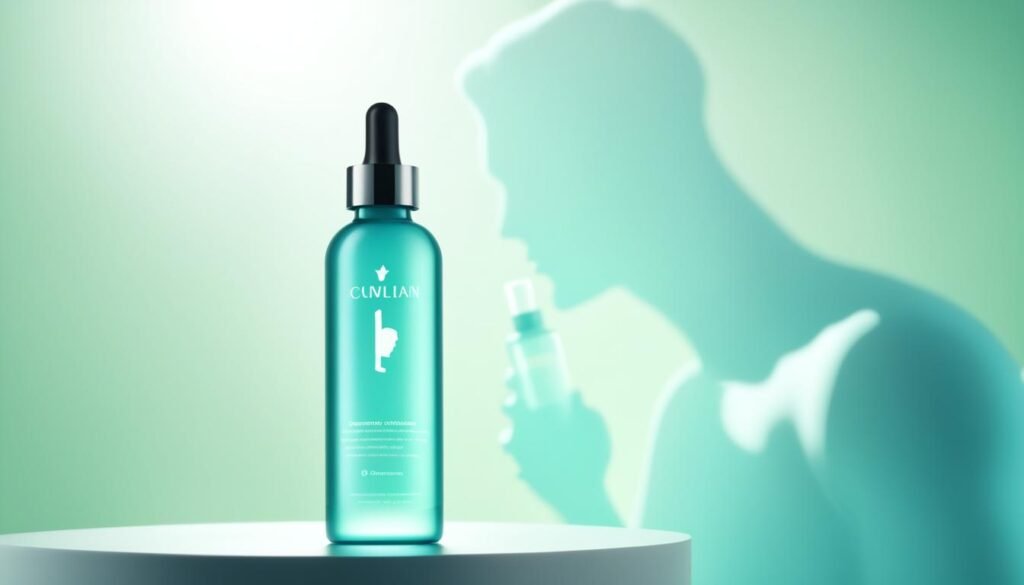
Alcohol can be found in various products, including cosmetics, mouthwashes, and hand disinfectants, and its presence directly impacts the health of the skin. Understanding the potential effects of alcohol in these products is crucial for maintaining optimal skin health.
Alcohol and Cosmetics
Alcohol is often included in cosmetics as a solvent, preservative, or to help with product texture. However, it can have negative effects on the skin. Continuous exposure to alcohol in cosmetics can lead to skin irritation, contact dermatitis, and dryness. It is advisable to choose alcohol-free alternatives or products with lower alcohol content to minimize the risk of skin issues.
Mouthwash and Alcohol
Many mouthwashes contain alcohol as an antiseptic or to provide a refreshing sensation. However, research has linked alcohol-containing mouthwashes to an increased risk of oral cancer. Additionally, the presence of alcohol in mouthwashes can result in the local production of acetaldehyde, a byproduct that is known to be carcinogenic. To prioritize oral and overall health, it may be beneficial to consider alcohol-free mouthwash options.
Hand Disinfectants and Alcohol
The use of hand disinfectants containing alcohol has become prevalent, especially in recent times. While these products are effective at killing germs, prolonged and repeated use can cause dry skin and other irritations. It is essential to ensure proper hand hygiene without overusing alcohol-based hand disinfectants. Maintaining skin health can be achieved by using moisturizing products to counteract the drying effects of alcohol.
| Product | Effects |
|---|---|
| Cosmetics | Skin irritation, contact dermatitis, dryness |
| Mouthwash | Increased risk of oral cancer, local acetaldehyde production |
| Hand Disinfectants | Dry skin, skin irritations |
It is important to read product labels and understand the potential impact of alcohol on the skin’s health. Making informed choices and considering alternatives can help minimize the risks associated with alcohol-containing products and maintain optimal skin health.
Long-Term Effects of Alcohol on the Skin
Prolonged heavy drinking can have significant long-term effects on the health of your skin. Chronic alcohol consumption not only affects the skin’s appearance but also increases the risk of developing various alcohol-related skin conditions. These long-term effects can have a significant impact on your overall skin health and quality.
One of the major consequences of chronic alcohol consumption is an increased risk of skin infections. Excessive alcohol intake weakens the immune system, compromising your body’s ability to fight off bacteria, viruses, and fungi that can cause infections. This can lead to recurrent infections, slow healing wounds, and overall compromised skin health.
Another worrisome long-term effect of alcohol on the skin is an increased risk of skin cancer. Research has shown that alcohol consumption can contribute to an increased susceptibility to skin cancer, including both melanoma and non-melanoma types. It’s important to be aware of this risk and take necessary measures to protect your skin from excessive sun exposure, especially if you consume alcohol regularly.
Furthermore, chronic alcohol consumption can lead to skin changes associated with alcoholic liver disease. Liver dysfunction caused by long-term alcohol abuse can manifest in various skin conditions, including jaundice (yellowing of the skin and eyes), spider angiomas (spider-like blood vessels on the skin), and palmar erythema (reddening of the palms). These skin changes are often indicators of underlying liver damage and should not be ignored.
For individuals who already have existing skin conditions like rosacea, psoriasis, seborrheic dermatitis, porphyria cutanea tarda, or discoid eczema, alcohol can worsen the symptoms and severity of these conditions. It can trigger flare-ups, increase inflammation, and lead to more frequent and prolonged episodes of skin discomfort.
It’s essential to remember that the effects of chronic alcohol consumption on the skin are not limited to these conditions alone. Excessive alcohol intake can affect the skin’s overall health, vitality, and resilience, making it more susceptible to various environmental factors and accelerating the aging process.
Skin Infections and Alcohol Consumption
Chronic alcohol consumption weakens the immune system, making it harder for your body to fight off infections. As a result, individuals who drink heavily are more prone to developing skin infections, such as cellulitis (a bacterial infection of the skin) and fungal infections like candidiasis or ringworm. These infections can cause discomfort, pain, and require medical intervention for proper treatment.
Alcohol and Skin Cancer Risk
Studies have shown a correlation between alcohol consumption and an increased risk of skin cancer. Both melanoma and non-melanoma skin cancers have been associated with excessive alcohol intake. Regularly consuming alcohol can make your skin more vulnerable to harmful UV radiation and hinder your body’s ability to repair DNA damage caused by sun exposure, increasing your risk of developing skin cancer.
Alcoholic Liver Disease and Its Impact on the Skin
Excessive alcohol consumption can lead to liver damage, resulting in a condition known as alcoholic liver disease. This condition can cause various skin changes that serve as visible indicators of liver dysfunction. Examples include jaundice (yellowing of the skin and eyes), spider angiomas (spider-like blood vessels on the skin), and palmar erythema (reddening of the palms).
Aggravation of Existing Skin Conditions by Alcohol
Individuals with pre-existing skin conditions such as rosacea, psoriasis, seborrheic dermatitis, porphyria cutanea tarda, or discoid eczema may experience aggravation of their symptoms due to alcohol consumption. Alcohol can trigger flare-ups, increase inflammation, and prolong the duration of these skin conditions, leading to heightened discomfort and a decreased quality of life.
It’s crucial to understand that the long-term effects of alcohol on the skin aren’t limited to these specific conditions alone. Chronic alcohol consumption compromises the overall health and appearance of the skin, making it more prone to damage, aging, and various other skin-related issues.
Treating and Preventing Alcohol-Related Skin Issues
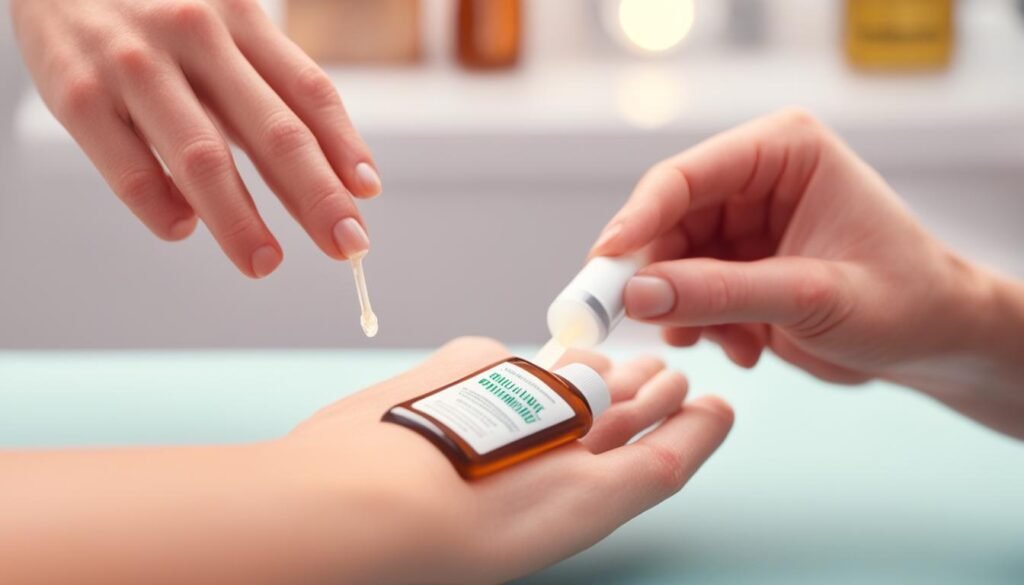
When it comes to addressing alcohol-related skin conditions, the most effective measure is to stop drinking alcohol altogether. By abstaining from alcohol, you can prevent further damage to your skin and promote its overall health.
To treat alcohol-related skin conditions, it is important to also address the underlying alcohol use disorder (AUD). Seeking professional help through cognitive-behavioral therapy, detoxification programs, inpatient or outpatient rehabilitation, peer support groups, or medications can be beneficial in managing the condition.
In addition to addressing alcohol use disorder, ongoing treatment for underlying skin conditions may be necessary even after quitting alcohol. This can involve using skincare products specifically designed to manage the condition, adopting a healthy skincare routine, and seeking dermatological care for specialized treatments if needed.
Taking a holistic approach to skincare by incorporating lifestyle changes, such as maintaining a balanced diet, staying hydrated, and practicing stress management techniques, can also contribute to managing skin health with alcohol consumption.
Example Treatment Options for Alcohol-Related Skin Conditions:
- Cognitive-behavioral therapy (CBT): A form of talk therapy that helps individuals identify and modify negative thoughts and behaviors associated with alcohol use.
- Detoxification programs: Medical programs that assist individuals in safely withdrawing from alcohol and managing withdrawal symptoms.
- Inpatient or outpatient rehabilitation: Comprehensive treatment programs that provide various therapies and support for individuals recovering from alcohol use disorder.
- Peer support groups: Supportive communities, such as Alcoholics Anonymous (AA), where individuals can share their experiences and receive guidance from others in recovery.
- Medications: Prescription medications that can aid in alcohol cessation and help manage cravings and withdrawal symptoms.
By seeking appropriate treatment and implementing healthy lifestyle changes, individuals can effectively manage alcohol-related skin issues and improve their skin’s health and appearance.
| Treatment Options | Description |
|---|---|
| Cognitive-behavioral therapy (CBT) | A form of talk therapy that helps individuals identify and modify negative thoughts and behaviors associated with alcohol use. |
| Detoxification programs | Medical programs that assist individuals in safely withdrawing from alcohol and managing withdrawal symptoms. |
| Inpatient or outpatient rehabilitation | Comprehensive treatment programs that provide various therapies and support for individuals recovering from alcohol use disorder. |
| Peer support groups | Supportive communities, such as Alcoholics Anonymous (AA), where individuals can share their experiences and receive guidance from others in recovery. |
| Medications | Prescription medications that can aid in alcohol cessation and help manage cravings and withdrawal symptoms. |
Note: Treatment options may vary depending on individual circumstances and should be pursued under the guidance of healthcare professionals.
Conclusion
Excessive alcohol consumption can have a significant impact on the health of our skin. It not only hinders the absorption of essential vitamins but also affects the skin’s appearance, hydration, flushing, and sleep patterns. The damaging effects of alcohol can be attributed to its ability to damage the cells lining the stomach and small intestine, disrupt digestive enzymes, and interfere with the body’s microbiome.
Furthermore, alcohol acts as a penetration enhancer, allowing harmful substances to be absorbed into the skin. This increases the risk of exposure to carcinogenic contaminants and can have long-term implications for our skin’s health. Cosmetics, mouthwashes, and hand disinfectants containing alcohol can also contribute to skin irritations and dryness.
To maintain optimal skin health, it is crucial to minimize or avoid alcohol consumption. By doing so, we can prevent deficiencies in essential vitamins, manage skin conditions aggravated by alcohol, and reduce the risk of skin infections, skin cancer, and alcoholic liver disease. Prioritizing our skin’s well-being and implementing healthy habits can help us achieve healthier, radiant skin.
FAQ
How does excessive alcohol consumption affect the skin’s ability to absorb vitamins?
Excessive alcohol consumption can damage the cells lining the small intestine and stomach, which can decrease the body’s ability to absorb essential vitamins. This can lead to deficiencies in vitamins such as vitamin B12, thiamine, folate, vitamin C, vitamin A, calcium, magnesium, and iron.
What effects can alcohol have on the skin?
Alcohol can cause flushing, reduced elasticity, dryness, and worsen underlying skin conditions such as rosacea, psoriasis, seborrheic dermatitis, porphyria cutanea tarda, and discoid eczema. It can also increase the risk of skin infections and skin cancer, weaken the immune system, and cause changes in the skin due to alcoholic liver disease.
How does alcohol affect hydration and the skin?
Alcohol is a diuretic, which can lead to dehydration. Dehydration can negatively impact the skin’s health and appearance, causing dryness, sunken eyes, decreased elasticity, and dry lips.
What role does alcohol play in facial flushing?
Alcohol can stimulate the release of histamines, leading to the dilation of blood vessels under the skin and causing flushing or inflammation of the complexion.
How does alcohol disrupt sleep and affect the skin?
While alcohol can initially help with falling asleep faster, it can disrupt sleep patterns and lead to frequent awakenings. Sleep disruption can affect the skin’s health and appearance, resulting in darker circles under the eyes, paler skin, a dull complexion, and increased wrinkles or fine lines.
How does alcohol act as a skin penetration enhancer?
Topically applied alcohol can act as a penetration enhancer, facilitating the transdermal absorption of substances such as carcinogenic contaminants in cosmetic formulations.
What are the specific products that can impact skin health when they contain alcohol?
Various products containing alcohol, such as cosmetics, mouthwashes, and hand disinfectants, can directly impact the health of the skin. Alcohol in cosmetics can lead to skin irritation or contact dermatitis, while alcohol in mouthwashes and mouthrinses has been associated with an increased risk of oral cancer and local acetaldehyde production. Hand disinfectants containing alcohol can cause dry skin and other skin irritations.
What are the long-term effects of alcohol on the skin?
Prolonged heavy drinking can increase the risk of skin infections, skin cancer, and skin changes associated with alcoholic liver disease. Alcohol consumption can also worsen existing skin conditions such as rosacea, psoriasis, seborrheic dermatitis, porphyria cutanea tarda, and discoid eczema.
The best preventive measure for alcohol-related skin issues is to stop drinking alcohol. Treatment for alcohol-related skin conditions may involve addressing underlying alcohol use disorder (AUD) through cognitive-behavioral therapy, detox, inpatient or outpatient rehabilitation, peer support groups, or medications. Ongoing treatment for underlying skin conditions may be necessary even after quitting alcohol.
What is the impact of excessive alcohol consumption on the absorption of vitamins through the skin?
Excessive alcohol consumption can impair the absorption of vitamins through the skin, leading to deficiencies in essential vitamins. This can contribute to various skin health issues and overall deficiency in the body.

